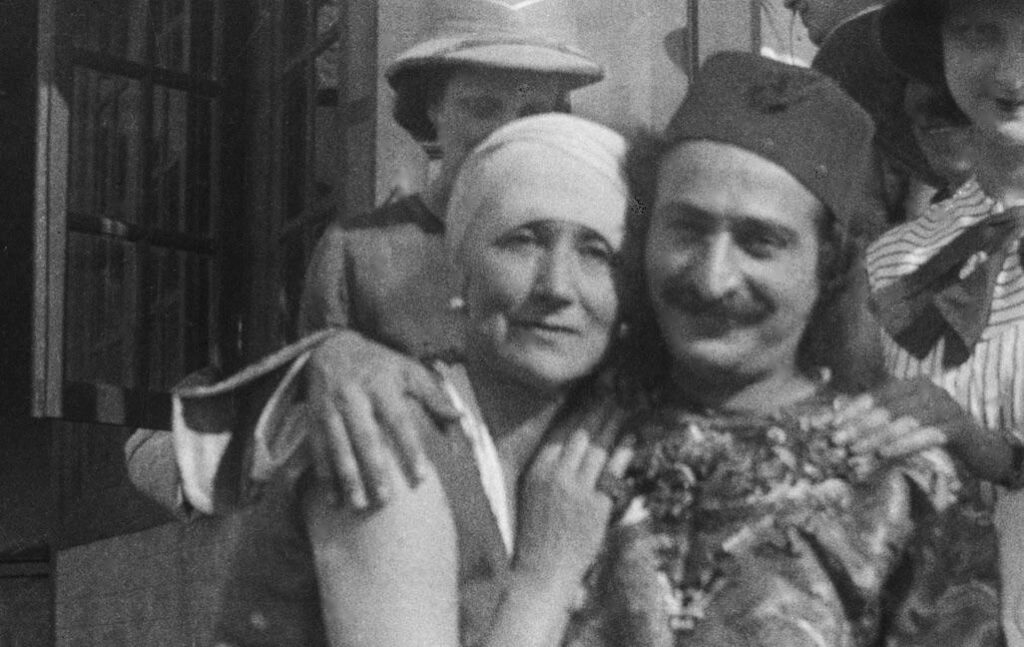
January 29, 2021
When you Suffer
“When you feel happy, think: ‘Baba wants me to be happy.’ When you suffer, think: ‘Baba wants me to suffer.’”* This was one of Baba’s five wishes for His lovers, which He had read out in the Barn three times one morning in 1958, while He sat in a yellow chair that had belonged to Princess Norina Matchabelli.
Emotions can seem discrete, and personal, and perhaps ours to control. But this wish of Baba’s forces us to recognize God’s hand even in the light and shadows of our inner world. To me, there are few examples of this more powerful than Norina’s life with Baba.
Norina’s first connection with Baba was through tears.** She laughingly said to her friend, who had been moved by Him, that she, too, would like to weep—and then found herself sobbing inconsolably for days, before even meeting Him. When she finally did meet Baba, she recognized the divine Beloved that some part of her had always known and devoted her life to His cause.
There were moments of light and bliss. Norina lived with Baba in India from 1936 to 1942, and when she returned to America, she started feeling His voice within her. She shared these “thought transmissions” with audiences across the United States in the 1940’s, the only person we know of who Baba allowed to speak for Him in this way. Many people first heard Baba’s message of love through Norina’s talks. His inner guidance, along with her exquisite artistic eye, were also instrumental in making the Center what it still is: deciding where to place cabins, painting the rafters of the Barn a Mediterranean blue.
But by 1947, Norina began to fall into a depression. In May of 1952, she finally welcomed Baba to the home that she and Elizabeth had so painstakingly built for Him. But she could barely participate in His visit, and later that month, the depression got so bad that she needed to be hospitalized. It would be with her for the rest of her life.
“When you suffer, think, ‘Baba wants me to suffer.’” We all experience inner pain, some of us depression with the loss of meaning and perspective that it brings. But when we’re so deep that we can’t feel Baba, is it still part of His will? In our inner darkness, is He still there?
Norina makes it so clear. She loved Baba, and Baba loved her, but even after seventeen years of energetic, creative life with Him, she had to embark on what Baba called the “dark journey of the soul.”*** And while she couldn’t always experience His presence through the pain, still, He loved her; still, He came to her. In 1952, when she was hospitalized, He suffered a car crash and became a patient in the same hospital. During Baba’s 1956 visit, when she couldn’t even leave her bed to be with Him, He appeared by her bedside again and again, with tiny, tangible acts of care: administering her medications; giving her a handkerchief to keep under her pillow.
“When you suffer, think ‘Baba wants me to suffer.’” Maybe we can’t ever fully understand why. But one morning on that same visit in 1956, while Norina lay in a nearby cabin, Baba sat looking over the lake—just as Norina and Elizabeth had, thirteen years earlier, when they realized this was the place for Baba’s Center. It was there He dictated: “Only because of the infinite love and mercy of God can man learn to realize through the lessons of misery on earth that inherent in him is the source of infinite bliss, and that all suffering is his labor of love to unveil his own infinite Self.”****
*Part of Baba’s message “My Wish,” Lord Meher Online, pg. 4380
**Details of Norina’s life from Norina’s Gift, introduction by Christopher Wilson and Charles Haynes, pgs. 1-54
***Norina’s Gift, pg. 37
****Lord Meher Online, pg. 4041